Toyota Reveals FCV fuel-cell concept at 2014 Consumer Electronics Show
For years, hydrogen fuel-cell vehicles have often been heralded as the cars of tomorrow. However, it seems the future is already here, as Toyota showcased a fuel-cell vehicle at the 2014 Consumer Electronics Show in Las Vegas, Nevada. Are you prepared for the future? This radiant blue four-door sedan could be what a hydrogen fuel-cell vehicle looks like in the near future. During the 2014 CES event, two hydrogen fuel-cell vehicles made their debut. One was the FCV concept, a sleek mid-size sedan in Radiant Blue that gave us a glimpse into what the future of automotive design might hold. The other was a camouflaged prototype that has been put through rigorous testing across North America for over a year. According to Toyota, this prototype offers a driving range of approximately 300 miles, accelerates from zero to sixty in around ten seconds, produces no emissions apart from water vapor, and can be refueled in just three to five minutes. “We’re not reinventing the wheel; we’re just refining everything needed to keep it turning,†said Bob Carter, senior vice president of automotive operations for Toyota Motor Sales (TMS), USA Inc., at the opening of CES, the world’s largest tech trade show, as per a press release. “Fuel cell electric vehicles will arrive sooner than most people expect and in larger numbers than anyone anticipated.†Hydrogen combines seamlessly with oxygen to produce water and electricity without any additional byproducts. For many years, the idea of using hydrogen gas to power electric vehicles was dismissed by some as a futile endeavor. Of course, there are challenges. First, building these vehicles at an affordable price point is crucial. Second, creating a reliable and convenient hydrogen refueling infrastructure is essential. Toyota is addressing both issues and plans to launch their vehicle in 2015. This unveiling marks two decades of work for Toyota, who have invested heavily in research and development to make fuel cells more efficient and cost-effective. Over the last 11 years, a series of prototypes have clocked millions of miles across North America. As a result, the cost of the powertrain and fuel cells for the upcoming 2015 model has dropped by 95% compared to the initial prototype back in 2002. The FCV concept is an impressive feat of engineering, with a significantly smaller and lighter powertrain system than earlier models. Toyota claims the car will deliver over 100kW of power, enough to potentially power a home for a week. “There’s no question that the success of this technology will hinge more on the ownership experience than the brilliance of the vehicle itself,†noted Carter. “Affordability is key, but so is convenience.†Toyota has introduced its hydrogen fuel-cell prototype, calling it the car of the future. Do you think it's the right move? One major concern with any new fuel technology is the availability of refueling stations. Toyota plans to launch the vehicle first in California, collaborating with the University of California Irvine’s Advanced Power and Energy Program (APEP) to identify potential locations for new hydrogen fueling stations. APEP utilized various datasets, including vehicle ownership statistics from R.L. Polk for hybrids and electric vehicles, traffic patterns, and population density, to develop a model. This model assumed that drivers would prefer refueling stations within a six-minute drive. Based on this analysis, APEP determined that 68 station sites would be required for the San Francisco Bay Area, Silicon Valley, Los Angeles, Orange County, and San Diego County to serve approximately 10,000 fuel-cell vehicles. Funding is already secured, and Toyota expects the infrastructure to be completed soon. What are your thoughts? Is a fuel-cell vehicle truly the car of the future?
YUKA stainless steel industrial filters are designed for critical compressed air and gas applications in high tech manufacturing, food processing, caustic, marine or any aggressive environments.
The YUKA stainless steel filters are fabricated from polished 304 or 316 stainless steel for critical compressed air and gas applications in the high tech manufacturing, food processing and beverage industries.
The range of industrial stainless steel filters encompasses fifteen models with connections from RC1/2" to 3" and rated flows from 35 to 1313.16scfm.Flange connection is acceptable.
Specifically designed to provide efficient and effective contaminant removal in caustic environments, these filters are ideally suited for process applications such as food and beverage facilities.
The unique interchangeable sodium borosilicate microfiber glass filter elements incorporate stainless steel support media and a positive double o-ring click-lock seal to ensure optimal filtration integrity.
High pressure and harsh working environment required different material air filter, stainless steel air filter with 304,316 and 316L for material options.
Working pressure from 2 to 250 barg, double mesh support mesh for air filtere element, strong construction an ensure filtration peroformance. PF/AO/AA/AX enjoy over 4000 hours lifespan under the rate working condition.
Stainless Steel Filter,Stainless Steel Compressed Air Filter,Stainless Steel 304 Air Filter,Stainless Steel Air Filter Housing Hongrijia Depurate Facility Science & Technology Co.,Ltd. , https://www.yukafilter.com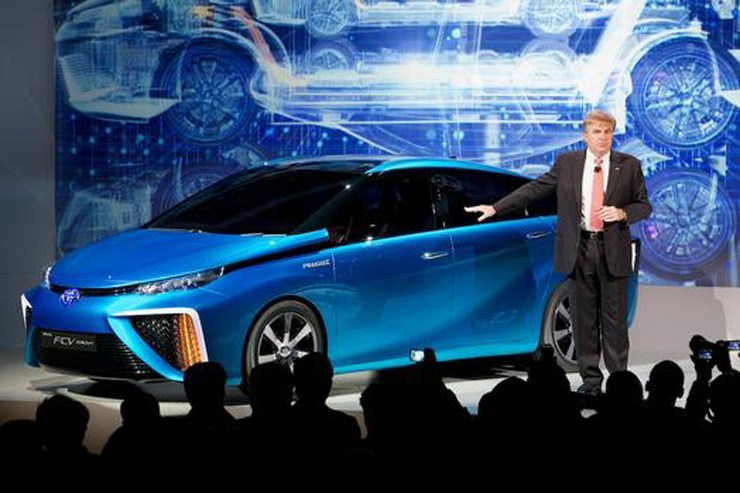

Related Posts
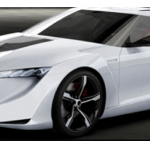 Toyota Concept Cars We Would Like To See In Production
Toyota Concept Cars We Would Like To See In Production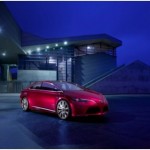 Cool 2012 Toyota Concept Vehicles
Cool 2012 Toyota Concept Vehicles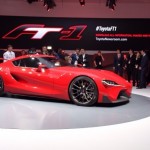 Toyota FT-1 Concept Debuts – What You Need To Know
Toyota FT-1 Concept Debuts – What You Need To Know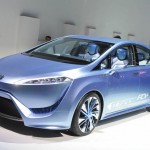 Toyota Fuel Cell Vehicle Stops in San Francisco – Is Hydrogen A Viable Fuel Source?
Toyota Fuel Cell Vehicle Stops in San Francisco – Is Hydrogen A Viable Fuel Source? Two Year Maintenance Plans Come To Toyota Vehicles
Two Year Maintenance Plans Come To Toyota Vehicles